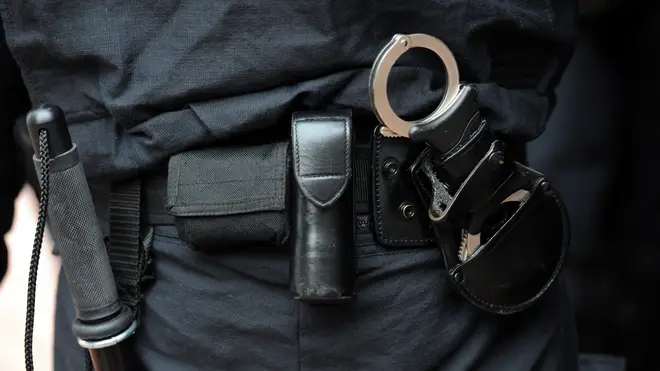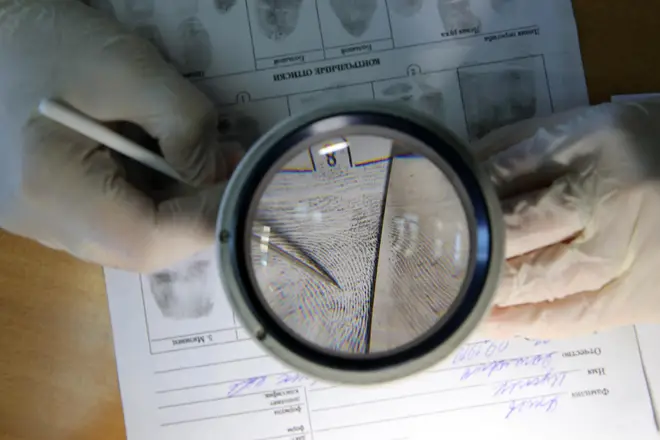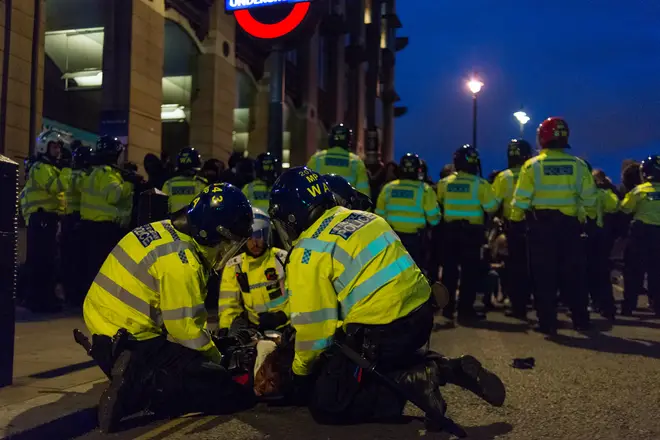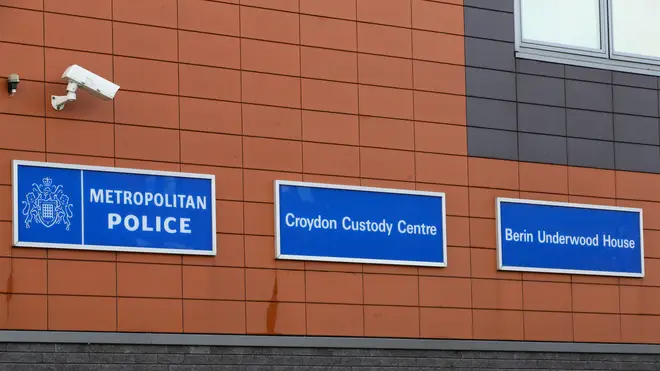
Election Night Live 10pm - 6am
25 September 2020, 15:51 | Updated: 25 September 2020, 16:32

What is the procedure when someone is taken into police custody and how long can they be held for?
When someone is arrested, they will usually be taken to a police station, held in custody in a cell and questioned.
After being questioned, they may be released with no further action, released under investigation, or released on bail pending further enquiries or charged with a crime.
But what is the procedure and what are your rights in custody?

Anyone who is arrested and held under police custody will be searched.
Everything in your possession will be taken from you and be kept by the police custody officer while you’re in the cell.
Your mobile phone, bag and anything in your pockets will be held, and you will also be asked to remove your belt and shoelaces.
This is done for safety and security reasons and to ensure your own safety and the safety of employees.

Information will be taken from everyone arrested and taken into police custody.
The police do not need permission to take photos of you, or to take fingerprints and DNA samples or to swab the skin surface of your hands and arms.
However, police do need your permission to take a blood or urine sample, unless it is taken in relation to a drink or drug driving arrest. They also need your permission to take dental impressions.
All of this information will be stored in the police database. You can find out what is stored on you by getting a copy of your police records from your local police station.
If you want police to remove your information from the database, you have to write to them.
However, they will only do this if an offence no longer exists or anything about how you were arrested or detained was unlawful.

Visitors are not permitted to enter police custody suites as stations do not have the staff or facilities to allow for it.
The only exception is in the case of someone needing an 'appropriate adult' with them - this applies for children up to and including 17 years old and vulnerable adults.
After someone is charged and remanded into custody awaiting a court appearance, the police will sometimes allow a visitor depending on circumstance and the risk of it affecting an on-going investigation.
For phone calls, anyone detained in police custody can nominate someone to notify about their arrest.
However, the right to have a phone call is not an English legal right.
Due to General Data Protection Requirements and privacy laws under the European courts of human rights article 8 (right to a private life), custody officers are not allowed to disclose to anyone over the phone or in person if someone is under arrest and in custody.
This means if you ring and ask if someone is in police custody, the police cannot tell you if they are.
Police can hold you in custody for up to 24 hours before they have to either charge you with a crime or release you.
Police can apply to hold you for up to 36 or 96 hours if you’re suspected of a serious crime, for example, murder.
If you’re arrested under the Terrorism Act, you can be held without charge for up to 14 days.

Met Pays For Graffiti Artist To Paint "Creative" Murals In New Custody Suite
Anyone in police custody has the right to free legal advice at any time if they are questioned.
Even if you turn down free legal advice at any point, you can change your mind later.
Anyone who has been arrested must be told about their right to free legal advice before being questioned, and once you've asked for legal advice the police cannot question you until you have it.
This can be revoked in serious cases if a senior officer agrees.
The longest you can be made to wait before getting legal advice is 36 hours after arriving at the custody suite. This increases to 48 hours for suspected terrorism.
To access free legal advice in custody, you can:
Ask for the police station’s duty solicitor (they’re available 24 hours a day and are independent of the police)
Tell the police you would like legal advice and they will contact the Defence Solicitor Call Centre (DSCC)
Ask the police to contact a solicitor (eg. your own)
For less serious offences you may be offered legal advice over the phone, instead of a duty solicitor